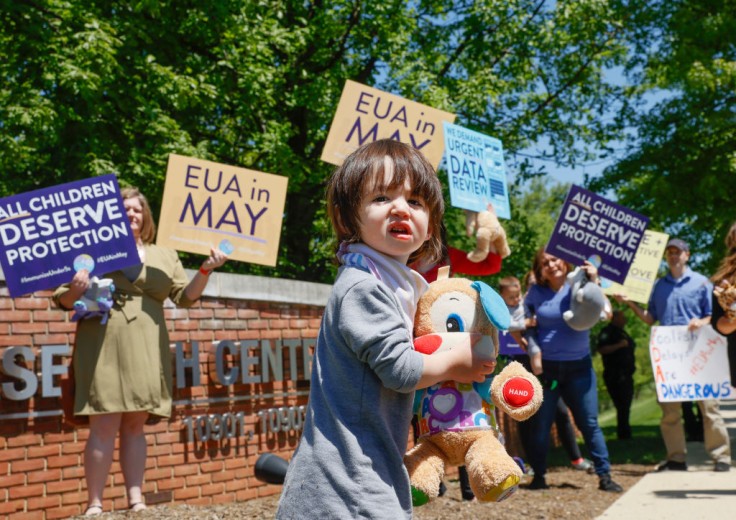
The Food and Drug Administration (FDA) announced on Friday, June 17, that it had authorized COVID-19 vaccines of both Pfizer-BioNTech and Moderna for young children.
However, the Centers for Disease Control and Prevention (CDC) still needs to sign off before shots can be administered.
The FDA said in a statement that the Pfizer vaccine was authorized for kids ages six months to 4 years, while the Moderna vaccine was authorized for children ages six months to 5 years. The agency also authorized Moderna's shot for children ages 6 to 17.
The FDA's authorization brings the roughly 18 million kids under 5 in the United States one step closer to getting vaccinated, according to NBC News. Kids in the age group are the only remaining group in the U.S. ineligible to get the shots.
CDC Director Dr. Walensky expected to sign off on vaccine authorization
The agency's decision will now go to the CDC's advisory committee, which will meet on Friday and vote on Saturday to decide how the COVID vaccines should be used for children under the age of 5.
If all goes as planned, CDC Director Dr. Rochelle Walensky will sign off on the vaccine authorization, potentially within hours of the clearance by the committee. Shots in the arms or thighs for babies and most toddlers under the age of 3 could begin as early as next week.
The FDA's vaccine advisory committee unanimously recommended on Wednesday that the agency authorize both the Moderna and Pfizer vaccines for the nation's youngest kids, according to Channel News Asia.
While many advisory committee members noted that severe illness from COVID-19 is less common in children than it is in adults, they said the vaccines should still be made available as an option for parents who wish to vaccinate their kids.
During a press briefing on Friday, FDA Commissioner Robert Califf said that vaccination rates in kids are still too low, particularly in children ages 5 to 11. According to CDC data, less than 30 percent of children ages 5 to 11 have received two doses of a COVID vaccine.
Read Also: Prince and Paris Jackson Make Surprise Appearance; Honor Late Dad Michael Jackson at Tony Awards
Vaccine regimens for Pfizer and Moderna
Pfizer's vaccine regimen for young children is two doses, given three weeks apart, followed by a third dose at least two months later. The shots are three micrograms each, which is one-tenth the dosage that is given to adults. Clinical trials found the shots to be 80 percent effective in preventing symptomatic COVID, according to Pfizer.
On the other hand, Moderna uses two 25 microgram doses, a quarter of the dosage given to adults, with the shots given four weeks apart. The shots were shown in clinical trials to be 40 to 50 percent effective at preventing milder infections. Moderna also said it is testing a booster dose for the young age group that could be distributed sometime this fall.
Dr. Peter Marks, the FDA's top vaccine regulator, said during the press briefing that while the vaccines of Pfizer and Moderna have different dosages and dosing schedules, both were shown in clinical trials to be safe and effective in young kids.